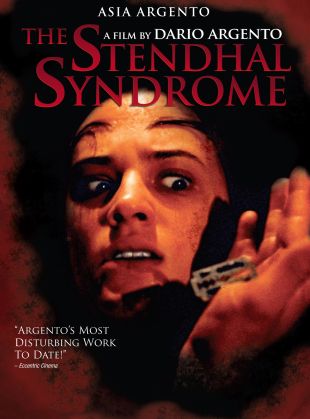
A sadistic and disturbing psychological exploration driven by the horrifying concept of a rape victim who begins to take on her attacker's dark persona, Dario Argento's The Stendhal Syndrome is ultimately a victim of it's own excess and the director's tendency to overcomplicate a fairly simple storyline. A vast improvement in style and storytelling over the Argento's previous efforts of the 1990s, The Stendhal Syndrome can be admired for Asia Argento's impressive portrayal of a female cop who shifts from predator to prey to questionably sane victim and who runs the gamut of emotion and shifting physical appearance. Regardless of Asia's convincing performance and the somewhat surreal and ultimately passive use of then-innovative computer-generated effects, it's hard to ignore the unrelenting cruelty the protagonist endures. Critics of director Argento have often accused him of being misogynistic (Argento's own admissions that he would rather see a beautiful woman die on film rather than an unattractive man or woman certainly doesn't aid an argument against this), and those critics will most certainly site this film as the ultimate proof of that theory. Though the story remains absorbing throughout the mid-point character shift that ignites the psychological torture of the second half, the seemingly meandering plot grinds to a halt just as it should truly shine. Director Argento crafts a stunningly visual opening sequence which, accompanied by old-friend Ennio Morricone's hauntingly hypnotic score rivals anything from his Deep Red (1975) / Suspiria (1977) heyday, and though his visual scheme remains strong the energy built here cannot sustain the duration of the film. While compositions remain suitably unnerving throughout, the storyline that was needed to truly project them into the viewer's psyche doesn't provide adequate fuel for them to do so. Throughout his career Argento's horror has passed from the everyday to the supernatural, and though the internalized terror of The Stendhal Syndrome is indeed as effective as ever in moments, it will certainly be difficult for the majority of viewers to endure.
